-
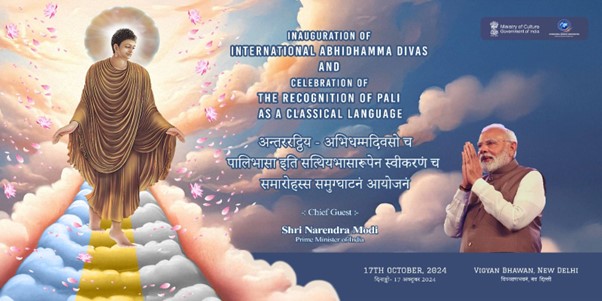
Inauguration of International Abhidhamma Divas And Celebration of The Recognition of Pali as a Classical Language


The International Buddhist Confederation (IBC), in collaboration with the Ministry of Culture, Government of India, hosted the International Abhidhamma Divas at Vigyan Bhawan On17th October, 2024. During the event, Prime Minister Modi marked the historic significance of "Abhidhamma Day," highlighting Pali as the language through which Buddha’s teachings were conveyed. He noted that Pali has now received the status of a classical language, underlining its importance in understanding the Dhamma. "A language is not just a medium of communication but the soul of a civilization," he emphasized, stressing the responsibility to preserve Pali and, through it, the teachings of the Buddha.
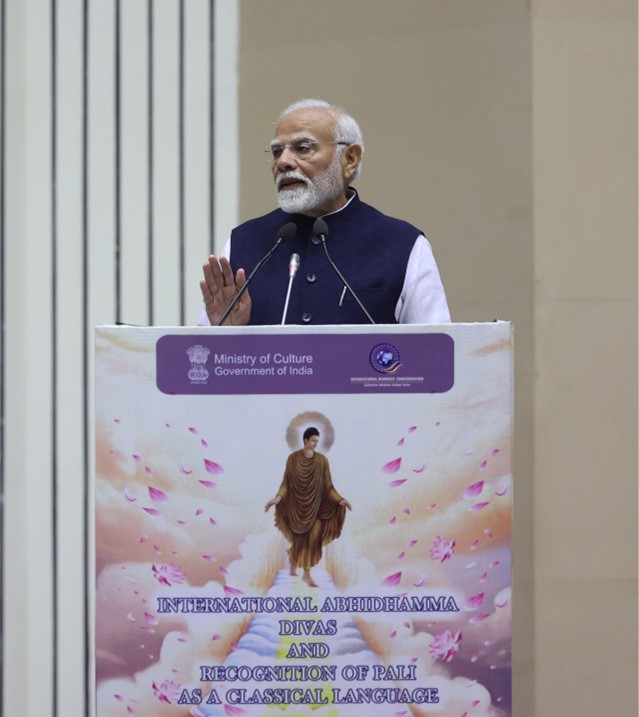
At the inauguration of the International Abhidhamma Divas, the Prime Minister reiterated that while Pali is not widely used today, it represents the heritage and identity of India. He affirmed the government's commitment to preserving and promoting the language, emphasizing that language, literature, art, and spiritual traditions form the foundation of a nation's culture. In recent years, the government has repatriated over 600 Buddhist artifacts as part of its efforts to revive India's Buddhist heritage.
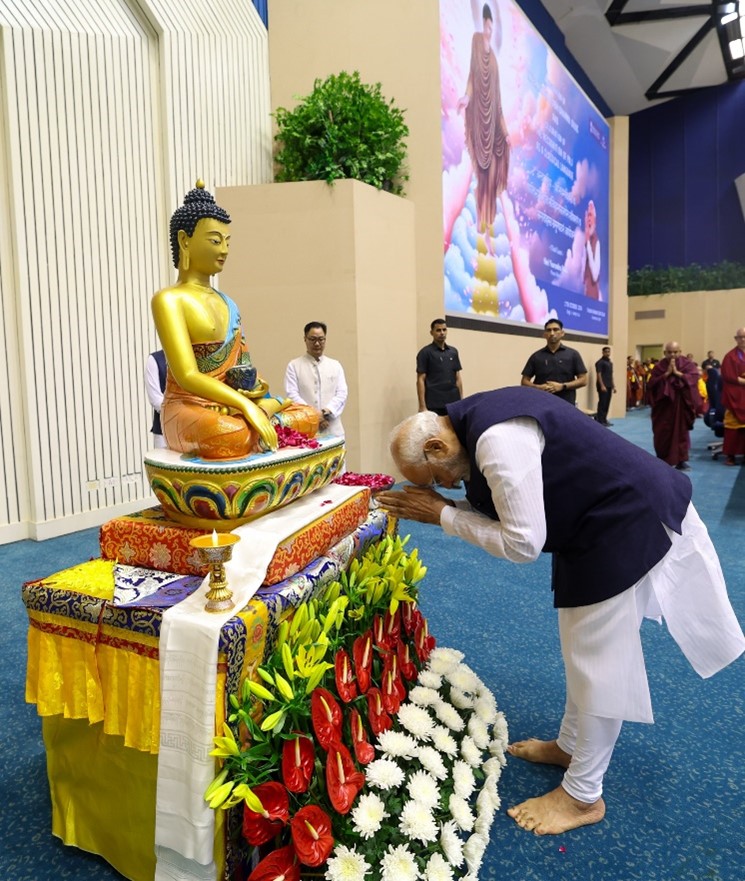
Prime Minister also noted the modern methods being employed to promote Pali, including the use of apps, digitization, and archival research. He urged scholars and academics to guide society in comprehending the Buddha Dhamma. Reflecting on India's resurgence, he said the nation is balancing rapid development with a revival of its rich heritage.
The Prime Minister also addressed the youth, urging them to take pride in their culture and roots while excelling in science and technology.
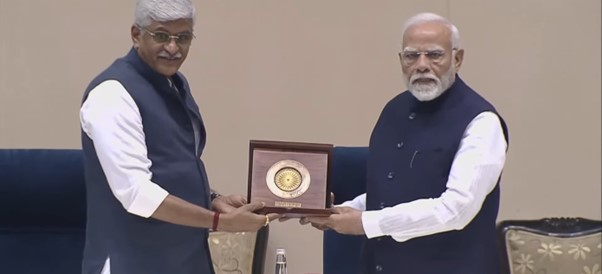
Union Minister of Culture and Tourism, Shri Gajendra Singh Shekhawat, delivered the welcome address, describing Abhidhamma Divas as significant for all humanity, representing a call for peace and harmony. He expressed gratitude to the Prime Minister for recognizing Pali as a classical language, which he said would promote Indian culture and encourage deeper research into ancient Pali literature.
Shri Shekhawat elaborated on the importance of the Abhidhamma Pitaka, which offers scientific explanations of mental and ethical disciplines. He emphasized that the study of Pali would enable more comprehensive comparative studies of Buddhist teachings, crucial in today’s turbulent times.
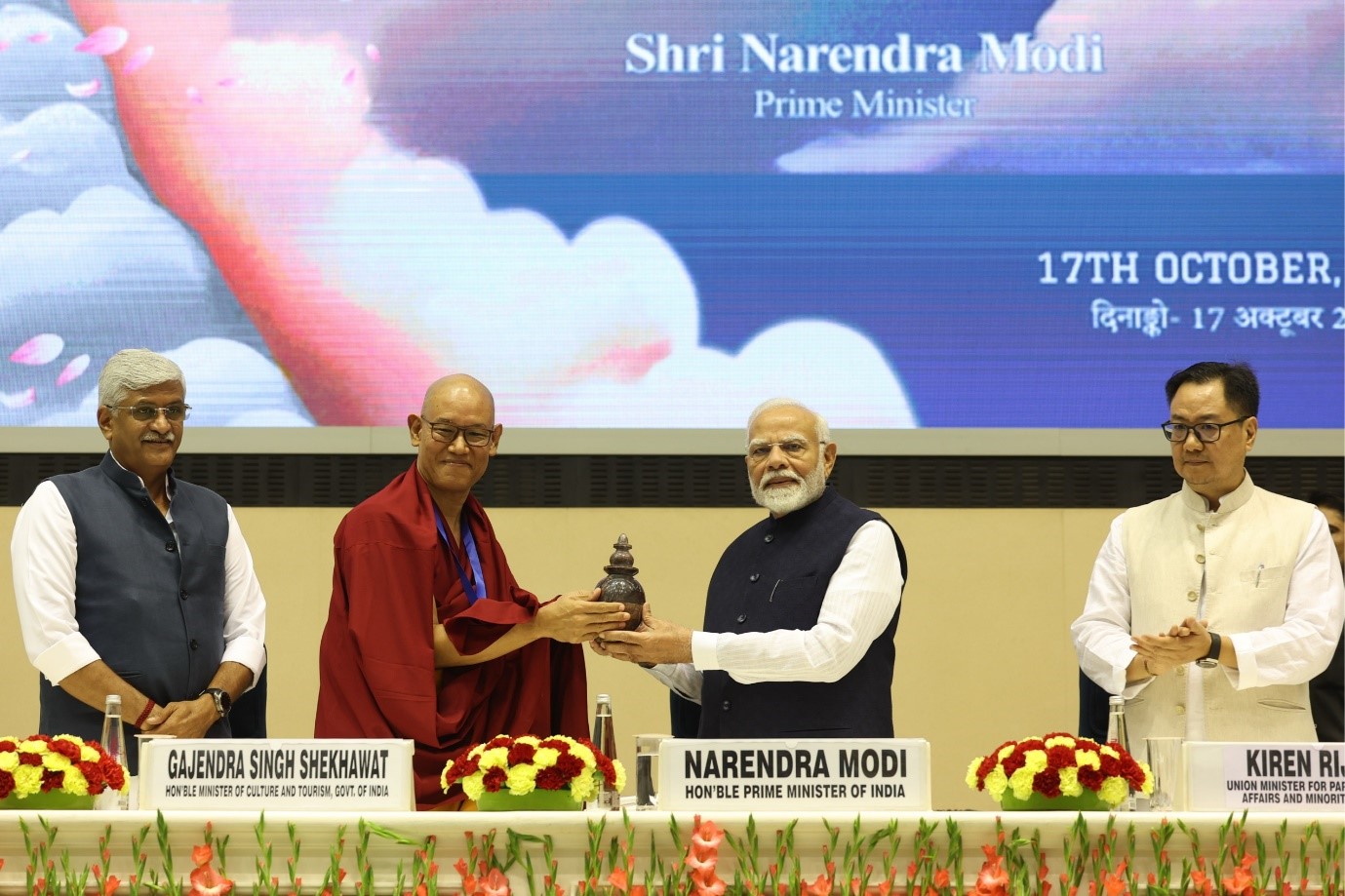
Shri Kiren Rijiju, Union Minister for Parliamentary Affairs and Minority Affairs, was also present at the event.
The Secretary General of IBC, Shartse Khensur Rinpoche Jangchup Choeden, opened the event with an invocation in Pali.
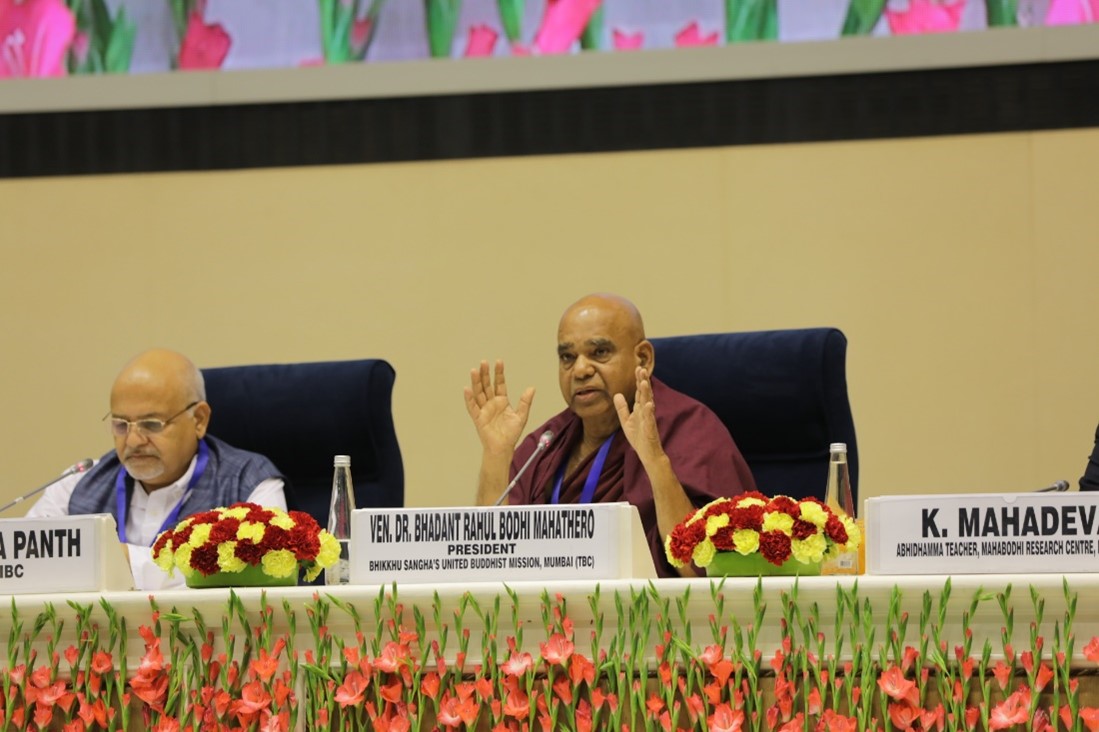
A special discussion session with two panels was held on “Significance of Abhidhamma in 21st century” and “Origin of Pali language and its role contemporary times”. Dr. Bhadant Rahul Bodhi Mahathero, President of Bhikkhu Sangha’s United Buddhist Mission, explained that Abhidhamma teachings provide a deep exploration of the human mind and body. Bhikkhuni Shakya Dhammadina discussed the positive effects of studying Abhidhamma on women’s health and well-being, particularly in understanding consciousness and the mind’s evolution.
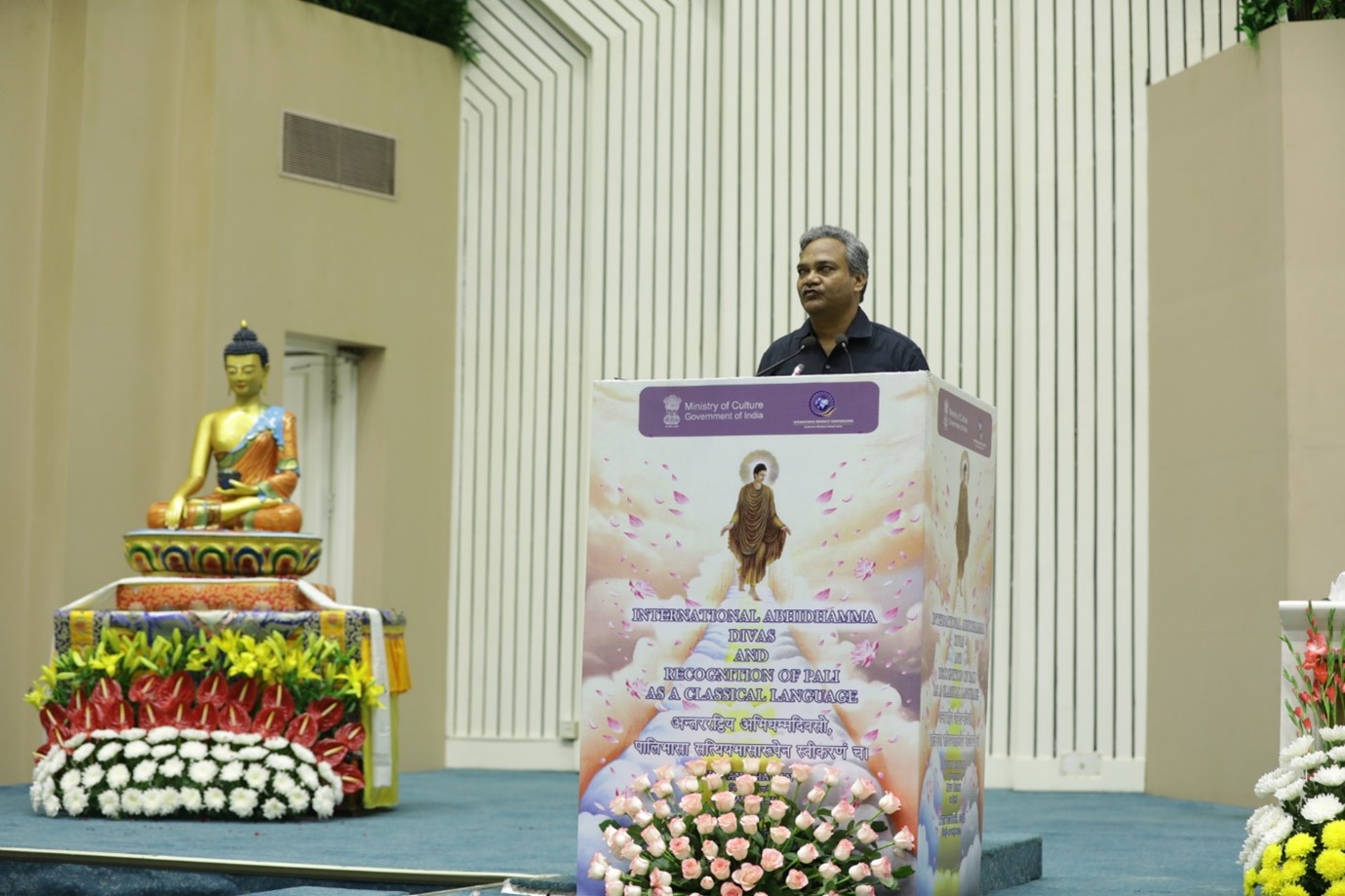
In a session on the relevance of Pali in contemporary times, Prof. Mahesh Deokar, Head of the Department of Pali and Buddhist Studies at Savitribai Phule Pune University, discussed Pali’s historical evolution. He noted that Pali's revival occurred in 3-4 CE when the Mahavihara tradition in Sri Lanka began preserving the language through written chronicles like the Dipavamsa. By the 10th century, Pali grammar had developed significantly, and the language spread across Southeast Asia.
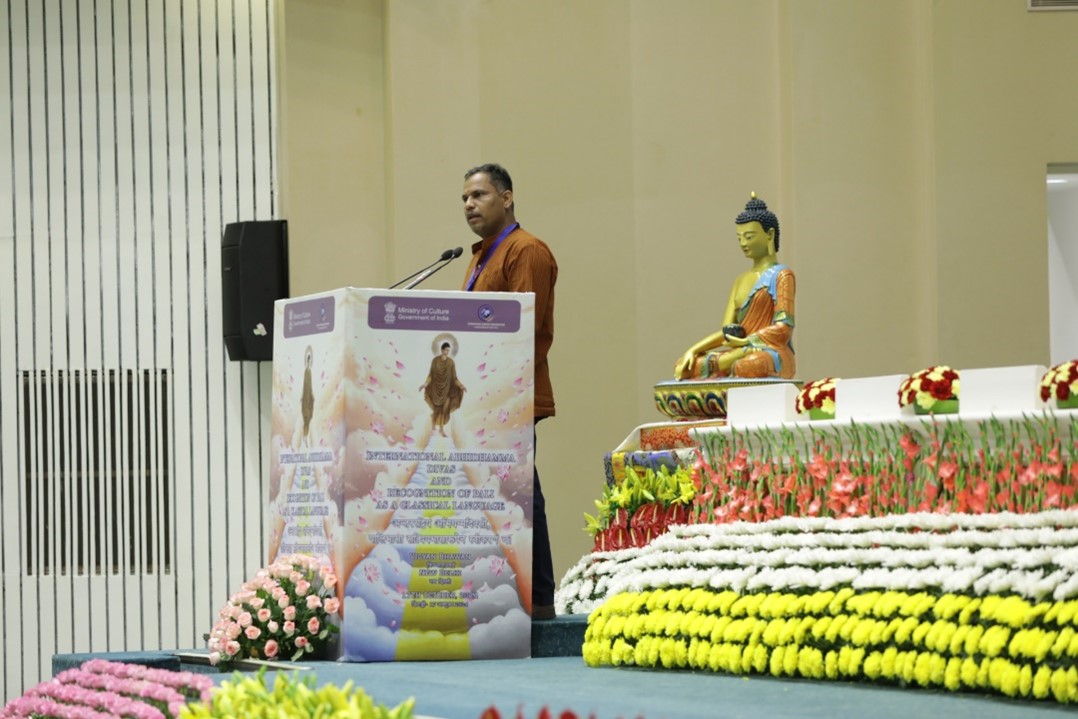
Dr. Anirban Dash, Director of the National Manuscript Mission, highlighted the influence of Pali in South Asia, noting its spread from India to Sri Lanka, Cambodia, and beyond, impacting socio-cultural and religious practices. He explained how Pali became the primary medium for propagating Buddha’s teachings in these regions.
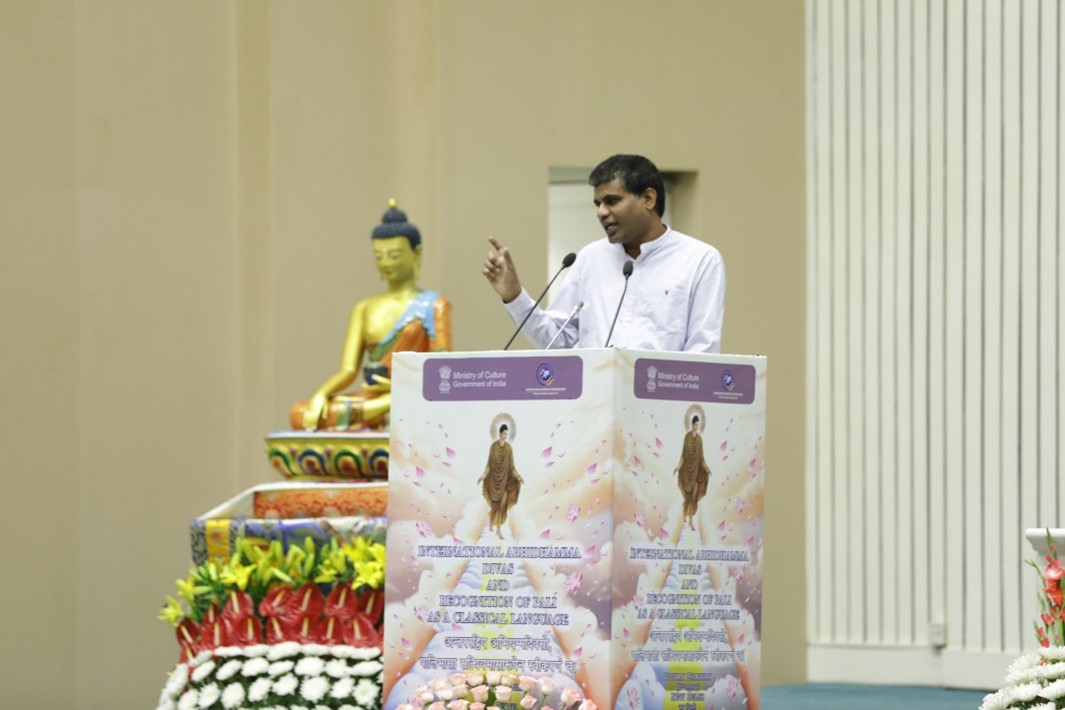
At present, Prof. Pranshu Samadarshi of Nalanda University said we are witnessing a third wave of Pali's revival, with institutions like Nalanda University playing a key role. The government's recognition of Pali as a classical language is a significant step in this process.
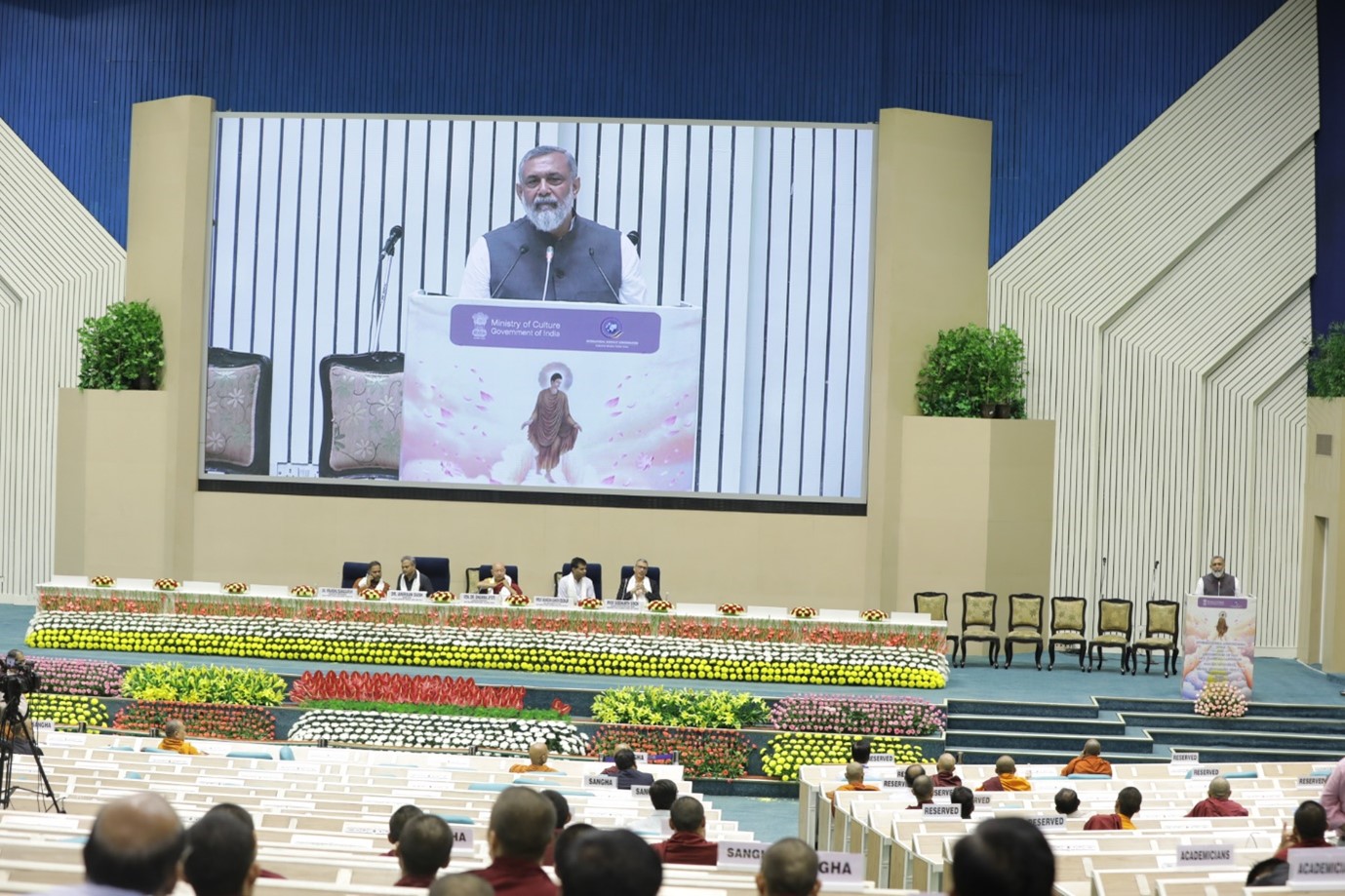
IBC Director General Abhijit Halder echoed the Prime Minister’s words, stating that a language is the soul of a nation. He hailed the recognition of Pali as a classical language as a momentous occasion that would bridge gaps in understanding the true meaning of Buddhist teachings, often lost in translation.
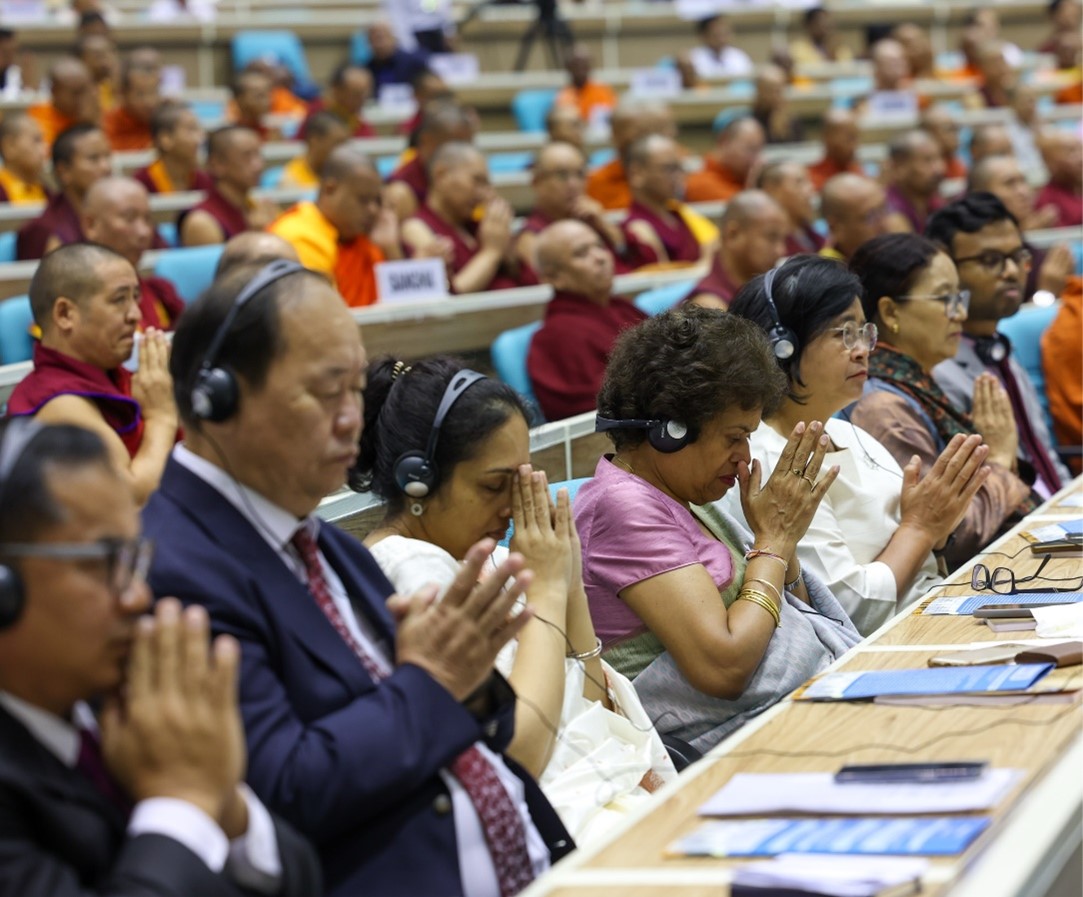
The event drew around 2,000 delegates, including ambassadors, high commissioners from over 10 countries, and numerous young attendees eager to learn about Pali’s classical language status.
Prof. Bimlendra Kumar of Banaras Hindu University delivered a special talk on the significance of Pali as India’s classical language. Two exhibitions were also held: one showcased scrolls of various Southeast Asian scripts and a map depicting Pali’s spread, while the other focused on the life and teachings of Buddha.
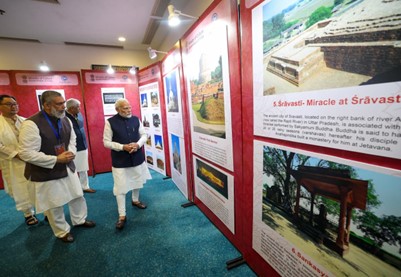
There were two exhibitions set up. One, displayed scrolls depicting various scripts from Southeast Asian countries and a map of the region showing the spread of the Pali language. The second exhibition was on ‘The Life and Teachings of the Buddha’.
